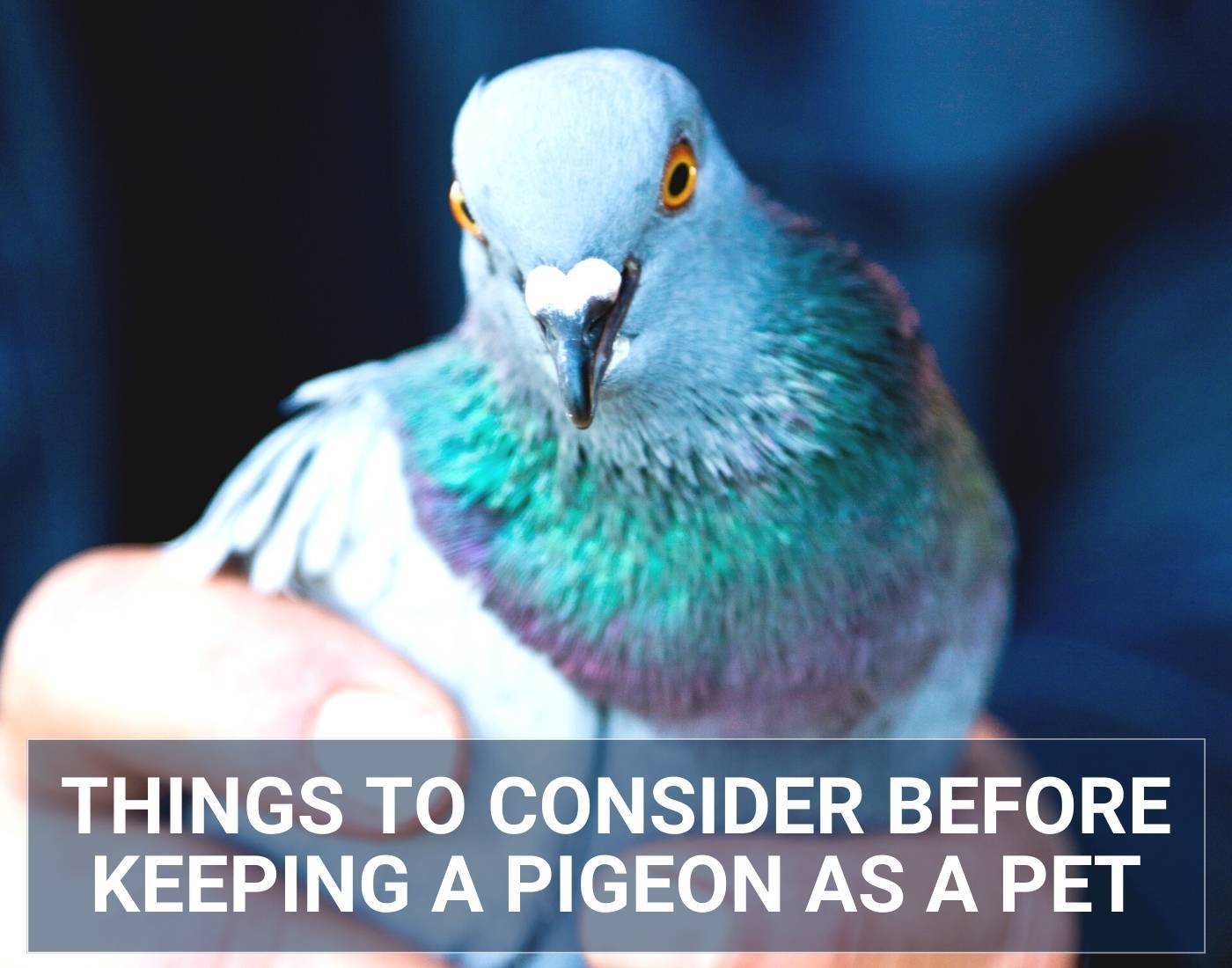Table of Contents
Pigeons live as a flock, so if you have a single pigeon, do not let it live outside as it will be lonely and stressed. Single pigeons should be kept as pets indoors and enclosed in a predator-proof cage.
Pigeons are great as pets because compared to their counterpart parrots, pigeons are pretty quiet, and the only noise you’ll hear from them is the cooing and chuckling. They are also stunning, pretty docile, and friendly, especially when interacting with humans.
They are affordable pets; you just need a cage, perch, water, and food, but you must know everything about them to provide optimal care.
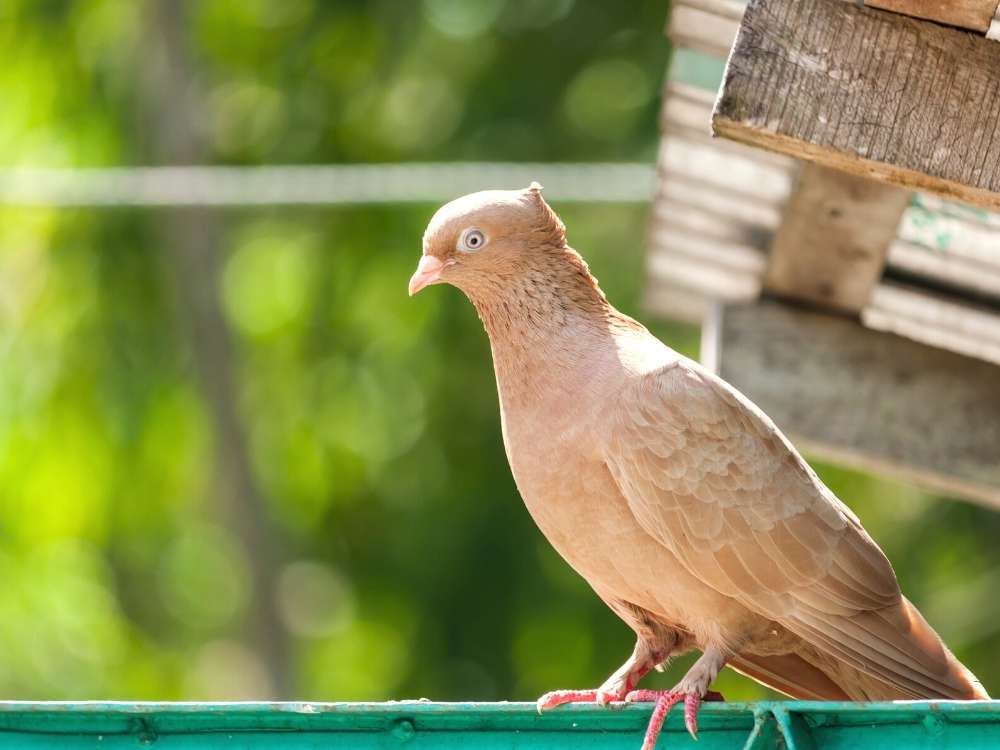
Things to Consider Before Petting a Single Pigeon
By now, you know that pigeons love company, so if you consider petting a single pigeon, be prepared to shower it with lots of attention. Like every other pet, you must be prepared before bringing it home. And as for a pigeon, you should do the following.
1. How Much Time Do You Have to Spend With It?
As we’ve said, pigeons are social animals, so before bringing a single pigeon home, you must ensure that you have plenty of time to dedicate to it as this will keep it happy, hence a more extended life.
That said, you must also consult with your local regulation to confirm that you are allowed to pet a pigeon.
2. Food
You must have good knowledge of the kind of food pigeons feed on. Like most animals, pigeons also need a balanced diet, including meat, vegetables, fruits, and pellets.
Pigeons should primarily eat seeds and grains, so ensure they are included in their diet. The best grains and seeds to give your pigeon include wheat, oats, lentils, flaxseeds, corn, barley, carob beans, rice, peas, sesame seeds, sunflower seeds, and sorghum.
You can buy pellets online or at a local pet store. The best thing about pellets is that they are specially prepared to cover a pigeon’s needs. Therefore, they contain healthy fats, vitamins, carbohydrates, minerals, and proteins. However, their diet must incorporate fresh foods, and that’s where vegetables come in. The ones bought from the market will do, including berries, chickweed, and apples.
Proteins can be in the form of worms but don’t feed them too much, let it be a treat given several times a week. You can also provide them with cooked food, such as eggs and lactose-free yogurt, as a source of lean proteins.
Experts recommend crushing eggshells into a powder and mixing it with their food. This is because the shells contain minerals. Alternatively, you can give them mineral supplements such as calcium.
It’s recommended that you offer some grit and gravel to your pigeon pet to help with digestion, but don’t overdo it as it could take up the space meant for other nutrients.
Remember to provide them with clean water for drinking. Keep a container inside their cage, and wash it first every time you replenish. This helps prevent dehydration.
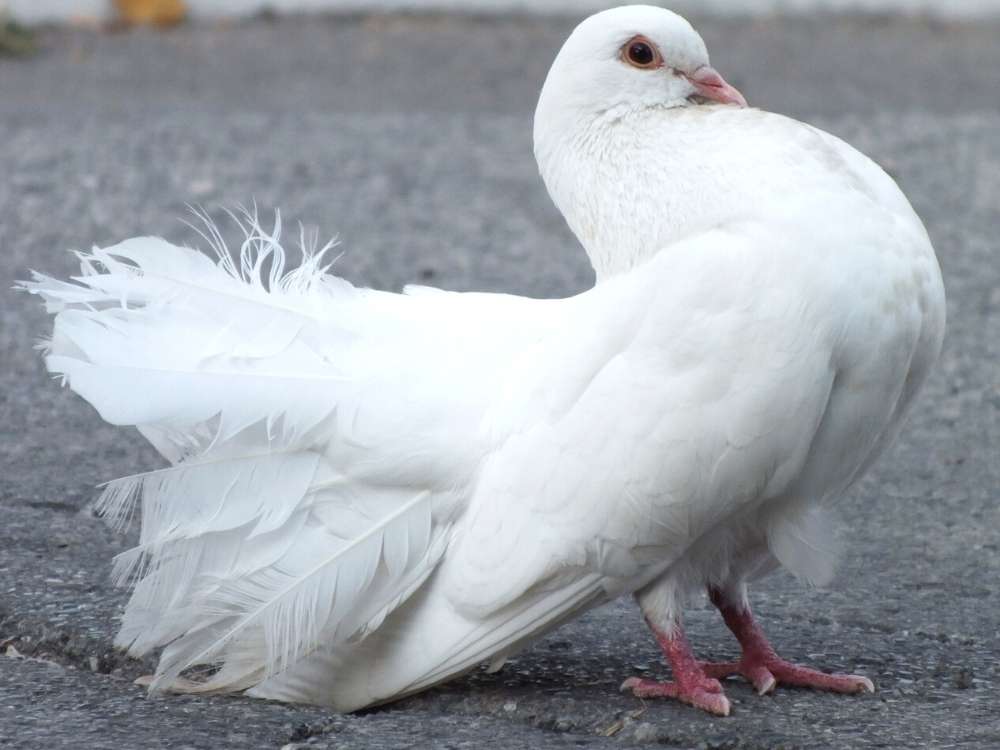
3. Housing
Where will you keep your pigeon upon getting home? Are you considering housing it indoors or outdoors? The choice is yours. But irrespective of the place, you must have a cage.
Outdoors
For instance, if you are housing a rescued pigeon, it would be best to place them outside as they do well in their natural habitat. But make sure to provide them with a predator-proof cage to protect them from predators. This means the bars must have narrow spacing to prevent other animals like raccoons from getting in.
Also, ensure that the cage has an enclosure during the cold season to keep your pigeons warm. Or move them indoors during the season.
Indoors
Pigeons make great indoor pets, so consider housing your pigeon indoors. The best part about having them indoors is you can remove the cage and hold and help them exercise. This will help create a bond with your pigeon and help them learn the ins and outs of your house, such that if even they fly out, they will return to the cage willingly, but always keep a close eye on them when they are free from the cage.
4. Temperature and humidity
What is the weather like? Pigeons are susceptible to extreme weather conditions and often succumb to harsh temperatures such as strong winds, cold, and rain. So it’s essential to ensure that they are well taken care of.
For instance, ensure that your house has a heating system during winter. On the other hand, during summer, ensure that your home has a cooling system and increased ventilations. And install barriers on the cage to protect them from strong wind.
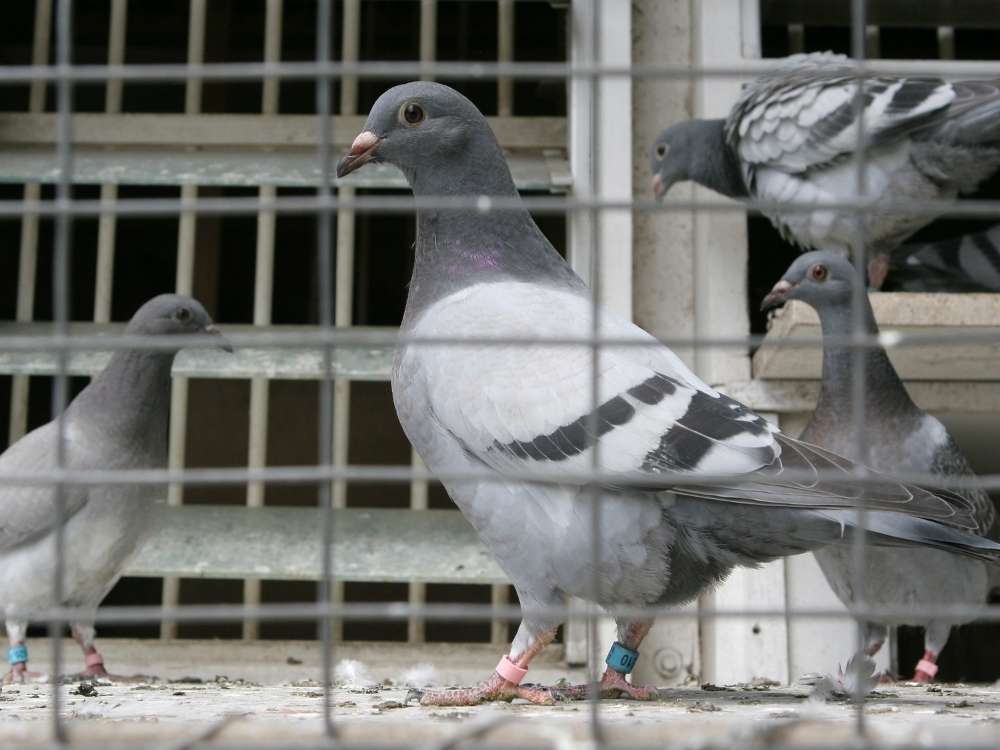
5. Hygiene
Pigeons love a clean environment, so make sure that their coop is always clean; you can place a mat that can be easily removed and cleaned on the floor. It would be best if you do not make your pigeon live and stand in a wire cage as it’s uncomfortable and unhealthy for their feet. They love playing in the water and keeping their feet and pigeon feathers clean. Therefore, please provide them with a big basin of water to bathe in, but make sure to change the water daily.
6. Health
Like every other bird, pigeons also get sick, so you should seek medical attention before they get worse. Always take your pigeon to the vet for regular checkups. Above all, provide a balanced diet, clean water, and a clean living environment.
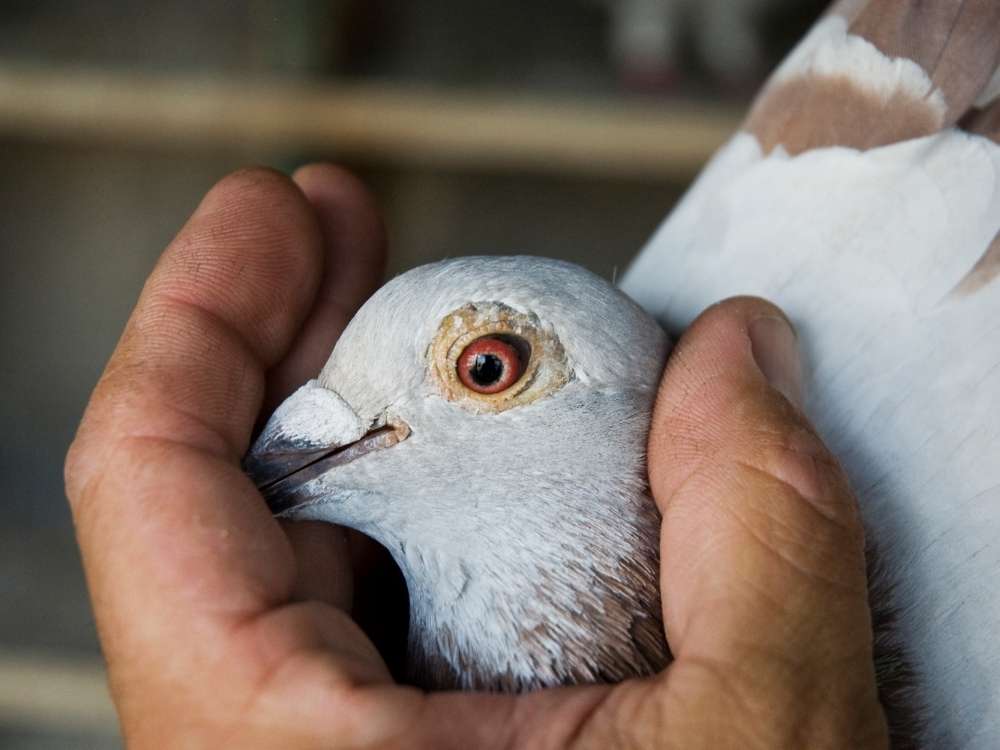
7. Training
Having a pigeon as a pet means you must train them to live in a house. As such, you must seek help from experts. A trained pigeon will never poop where they aren’t supposed to, nor eat or drink contaminated food.
Final Thoughts
Pet pigeons make your home brighter and ensure you are never lonely as they are social animals. So, if you consider petting a single pigeon, ensure you have plenty of time to spare. And above all, learn how to properly care for your pigeon for a long lifespan.
